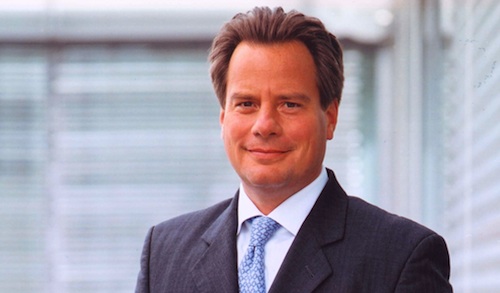
Jeffrey Hedberg is quitting Telkom. The acting group CEO will leave at the end of March, TechCentral has learnt exclusively from reliable senior sources at the JSE-listed telecommunications group.
Hedberg declined to comment when contacted on Thursday evening, but this publication has established that he has already informed Telkom chairman Jeff Molobela of his intention to step down.
He has told Molobela that he will not make himself available to take the reins at the group on a permanent basis.
Hedberg has held the position in an acting capacity since former CEO Reuben September was forced out last year.
Molobela, who himself is believed to be on his way out, had asked Hedberg to stay on until November, but he has declined the invitation, saying he’d rather pursue other opportunities, the sources say.
It’s understood Hedberg felt he would not be given the mandate he needed to fix Telkom commercially and operationally. TechCentral’s sources say Hedberg, a US national who was previously CEO of Cell C, would have wanted carte blanche to fix Telkom’s problems. This would have involved reducing costs and retrenching staff.
The sources, who spoke to TechCentral on condition they stay anonymous, say Hedberg felt government wouldn’t have given him free rein to do what he felt was necessary.
Retrenchments are unlikely to find favour among ruling-party politicians, especially in an election year.
Also, TechCentral’s sources say that Hedberg was concerned that government wanted Telkom to play a more active role in the rest of Africa. Hedberg, they say, believes Telkom needs to fix its operations at home before attempting to expand again elsewhere on the continent.
Hedberg’s decision to step down comes during a time of great uncertainty at Telkom. Government’s class-A share, which has given the state special rights over ordinary shareholders for the past eight years, expires on 5 March, and it’s not clear what role it sees the group playing in terms of its developmental agenda.
JSE CEO Russell Loubser has already warned government that the bourse will fight any attempt to extend the special rights beyond their expiry on 5 March. Telkom’s board and the JSE have already approved the group’s new articles of association, and these are now with Padayachie for approval.
Government holds almost 40% of Telkom’s equity — the figure is over 50% if the stake held by its pension fund management company, the PIC, is taken into account.
According to Telkom sources, the new articles of association strip government and the PIC, which also enjoys special rights through a class-B share it inherited from former Telkom strategic equity partner Thintana, of all their special rights.
Padayachie told TechCentral last year, shortly after being appointed as communications minister, that government was not happy about losing these rights. It’s not clear if government will force a showdown with the JSE over the issue, but if it does analysts are worried it could send the wrong message to foreign investors.
Already, Telkom is trading at a big discount to its net asset value, in part because of investor concerns about government’s involvement in the telecoms group.
It’s not clear what Hedberg will do next, though it’s understood he has no immediate plans to leave SA.
He first came to the country when he was appointed as CEO of Cell C in 2006. He left Cell C in 2009 and was hired by Telkom to try to rescue Multi-Links, the group’s failing Nigerian subsidiary.
When September was forced out, Molobela asked Hedberg to take over leadership of the group in an acting capacity until a permanent appointment could be made.
Hedberg’s decision to leave will pile the pressure on communications minister Roy Padayachie, who is likely to appoint a new chairman of the board before government’s special rights expire. It’s strongly rumoured that government wants to give the job to businessman Lazarus Zim, who is regarded as politically well connected. Zim is a former CEO of Anglo American SA and is founder and chairman of mining group Afripalm Resources.
One senior Telkom source, speaking on condition of anonymity, describes the situation at Telkom as an unfolding “tragedy” given that the group has valuable assets that could be squandered if government interferes in the commercial running of the organisation. — Duncan McLeod, TechCentral
- Subscribe to our free daily newsletter
- Follow us on Twitter or on Facebook




